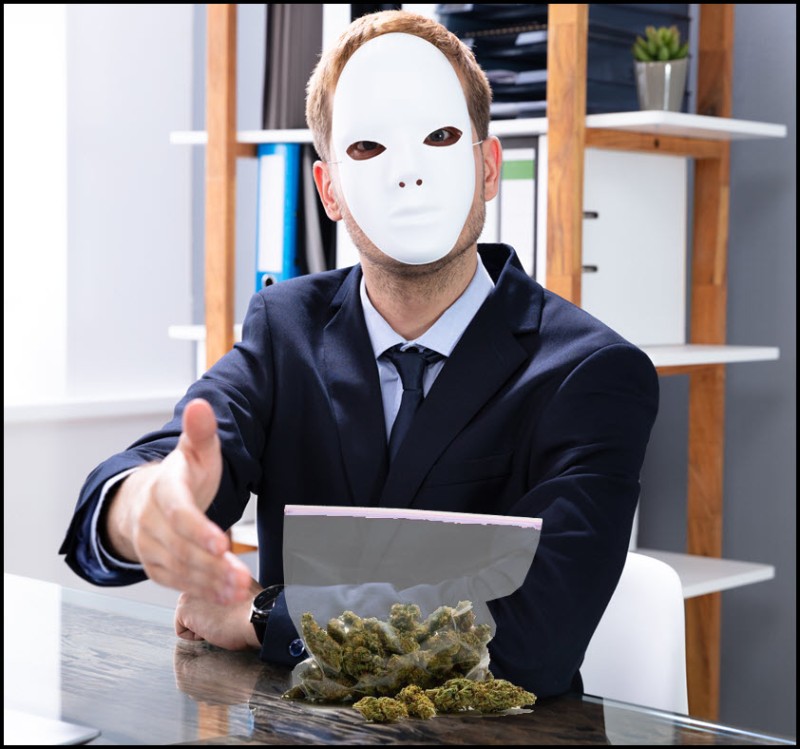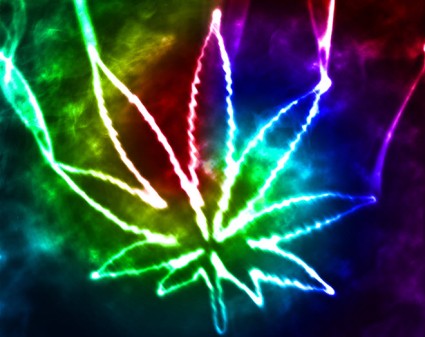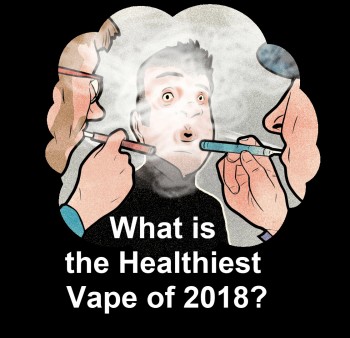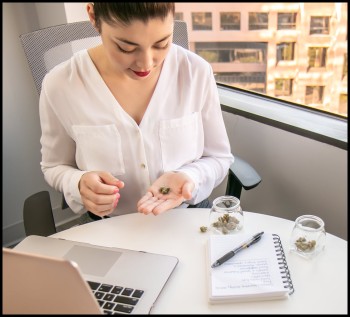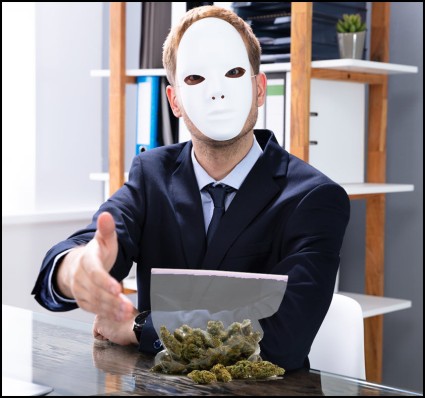
https://nypost.com/2022/11/30/hordes-of-illegal-cannabis-shops-invade-nyc/
Have you tried some of that “tainted cannabis”?
Sounds scary right?
Well, a new study claims that “tainted pot” might be the next thing you should be worried about!
There are “likely tens of thousands of illicit cannabis businesses” currently operating out of bodegas, smoke shops and other storefronts in New York City — with many of the pop-up shops selling bad or dangerously tainted weed, a new study reveals.
SOURCE: NY POST
Yes, you read that correctly “Tens of thousands of illicit cannabis businesses”.
Before legalization we called them our “dealers” but since it’s legal now they shall be referred to as “businesses”. Nonetheless, they are selling “dangerously tainted weed”.
But what is tainted weed? Is it doused in something? Too much fertilizer? Not properly flushed?
In this article we’re going to be talking about the rise of “tainted pot” and how this type of “newspeak” is actually lingo used in Prohibition 2.0.
So tell me more about this study…
If you want a direct access to the Study, you can find it here.
In order to understand what the study considered “tainted” we take a look at the “overview section” where it states;
Results revealed the presence of several harmful contaminants, such as E. coli, pesticides, heavy metals, and salmonella in 40 percent of the illegal products purchased, including vapes. Many of the products tested did not contain the amount of THC advertised on the label and in one case, featured double the amount of listed THC. After reviewing the items under the state’s proposed branding regulations, 100 percent of the products failed.
SOURCE: STUDY
In other words, tainted pot had instances of contaminants, heavy metals, and the THC levels weren’t accurately labeled or double the permitted allowance.
Yet according to the FDA Handbook on Contaminants in our food;
According to the FDA, it is “economically impractical to grow, harvest, or process raw products that are totally free of non-hazardous, naturally occurring, unavoidable defects”.
SOURCE: FSTC
The word defect actually refers to “minimal amounts of rodent feces, maggots, insect fragments, animal and human hairs, parasitic cysts, and rot!
For example, foods like canned fruit, cornmeal, and chocolate are allowed whole insects, insect parts and insect larvae.
Most fruit are allowed to have bugs in them, as long as they don’t cause the fruit to rot and tomato products like pizza sauce are allowed to contain up to 30 fruit fly eggs are allowed per 100 grams.
SOURCE: FSTC
This would NOT be considered “tainted” but would be sold to you for yummy digestion later. Therefore when you read a report that talks about the presence of e.Coli, heavy metals, etc – just know that you’re already tolerating it and have probably eaten several insects over the span of your life.
Klaus Schwabb would be proud!
Here’s a snapshot of the FDA’s table of Defects;

Delicious!
Now back to the Study about the Tainted Pot!
In their report, the study authors explained that by keeping these illicit shops open, you would cause a real danger to the public.
Allowing these unregulated, illicit operations to continue operating with impunity will only exacerbate an already alarming public health trend especially among teens and young adults who either are unaware of or choose to ignore the health risks. Sellers providing illicit and potentially dangerous products, which are easily and readily available in the gray market, risk consumer safety and threaten public confidence in the adult-use industry before it even begins.
As you can see, the wording is calling for a crack-down on these illicit spots because “safety”. However, prior to legalization all of these places were operating already. In fact, it’s the license dispensaries that are coming “late” to the party.
Independent dealers, for the most part – try to sell good weed. The fact that there are certain contaminants on the plants or that there is “too much THC” in the weed are just the “defects” the FDA permits.
Everyone knows that when you buy weed from the dude down the street, it’s not going to be tested for these things. However, since you’ve been buying from him for years and nothing bad has ever happened to you – a bit of eColi couldn’t hurt!
It seems that the Mayo Clinic Agrees!
Escherichia coli (E. coli) bacteria normally live in the intestines of healthy people and animals. Most types of E. coli are harmless or cause relatively brief diarrhea. But a few strains, such as E. coli O157:H7, can cause severe stomach cramps, bloody diarrhea and vomiting.
You may be exposed to E. coli from contaminated water or food — especially raw vegetables and undercooked ground beef. Healthy adults usually recover from infection with E. coli O157:H7 within a week. Young children and older adults have a greater risk of developing a life-threatening form of kidney failure.
SOURCE: Mayo Clinic
Unless you’re eating an edible with E. coli, then you’re probably not in any real danger from contracting it. Especially if you’re going to light the plant on fire and smoke it.
However, I think one of the bigger concerns for the study authors is the “high THC count” and the “undermining of the legal system”.
In addition to presenting a public health crisis, these illicit dispensaries also serve to weaken and potentially debilitate the first round of licensed cannabis retailers by undercutting the consumer market through the avoidance of taxes, testing requirements, accounting measures, brick-and-mortar storefronts, and other legally required start-up costs. In addition, the illicit dispensaries easily confuse cannabis consumers, who are often unable to distinguish between illicit operations and legal adult-use stores.
SOURCE: STUDY
And here’s the real kicker! This is all about the integrity of the legal market. However, the legal market has a cap on licenses – meaning that these “illegal” shops are creating competition to these legal entities. These legal dispensaries had to pay enormous start up fees, licenses, and need to test their weed.
Whereas these illicit shops can just grow and sell, without having to pay taxes or deal with regulatory hurdles. The only risk they incur is the risk of being arrested and jailed. Other than that, it’s just business as usual.
This is a major problem for the legal cannabis industry – or at least, the version of legal cannabis we see today!
The Major Problem with Modern Legalization
I think it’s incredibly important to not get lost in the fog of cannabis legalization and forget the system we’re exiting. Prior to legalization, society responded to any kind of cannabis-related activities with brute force.
The government actively hunted cannabis users and then imprisoned them, turning them into “state owned property”. While not directly forced to work – most inmates will tell you that “getting a job is a way to pass the time…something to do…”
In many cases the State only pays cents per hour for manual labor which is justified because the person “violated the law” thereby forgoing their rights. Except, in this case – the law is ridiculous or a “non-law” as Abraham Lincoln would call it.
It’s a law designed to make an activity that doesn’t cause harm to any “other person”, yet is deemed as “highly illegal” and as a result a direct path to “forced indentured servitude”.
While this “grift” worked for a while, the human toll was getting to high and it became inevitable for “legalization” to happen. Utilizing the same mechanism of oppression, legalization activists focused on the disproportionate execution of the law.
Eventually, the will of the people became the loudest voice in the room, and the government is forced to legalize – however, under “their terms”.
Now, within a regulated market – any dispensary, grower, cannabis enthusiast – is considered a “bad player” because they aren’t utilizing “legal avenues”.
They begin to use words like “tainted pot” and “public health crises”, and once more implement the power of law enforcement to “weed out these bad players”.
And once again, we find ourselves back into a system of oppression – a system where “few benefit” and the “many are forced to comply”.
Don’t get me wrong, I’m all for legal cannabis – however, in the case of certain markets with a high threshold of regulation, caps on licenses, limits on personal growth, consumption and purchase limits, etc – it begins to stink of Prohibition.
Cannabis is about human rights
People often ask me why I am so passionate about cannabis and there is a very simple reason – it’s a human right. In fact, it’s one of the “sacred human rights” up there with the “right to speak your mind”.
For me, despite the fact that cannabis in its own right is a beautiful plant that is insanely unique and complicated, yet fantastically simple and elegant – the fact that there are “laws against it” is the major problem.
You see – cannabis is a plant that grows naturally on planet earth. Nobody created cannabis, it’s not a product, and it certainly doesn’t belong to any company. You are a human from the planet earth. You, like the cannabis plant is a product of millions of years of evolution and before the existence of any one of these governments – you and this plant coexisted.
It’s the most plausible reason why phytocannabinoids and endocannabinoids are so similar. We coevolved with this plant over millions of years.
In this case, cannabis is a human right. But even to a more pragmatic reason – you own your body. You are the alpha and omega of your being and for another entity – aka the government – to create laws prohibiting you from utilizing any earthly resource that is readily available to your advantage – well, that’s the real crime!
When it comes to your own body – you should always have the final say. Irrespective of “laws”, when it comes to what you put into your mouth – it is just as important as having the ability to whatever it is you want coming out of the mouth.
Modern Legalization Limits your Freedom
Unless you live in a state that allows for gifting, home growing, small scale selling, etc – most legal schemes rely on “licensed dispensaries” to service the public. However, these dispensaries have follow strict regulatory practices, increasing the cost of production. Not to mention, they have to get expensive licenses, which are only available in limited capacity. Couple this with the inability to use modern banking and you’ve got yourself a recipe for elitism.
You can check it out in their conclusion;
Thousands of New Yorkers spent years fighting for a solid and successful adult use cannabis market. Just as the Empire State is poised to achieve that significant goal, new illicit operators have sprung up, latching on to the coattails of the respected pre-existing legacy market and threatening both public health and safety and the long-term success of legal operators, particularly CAURD licensees who will launch first in the nascent adult-use industry. These bad actors present a clear danger that could undermine both the budding industry and the health of New York residents and visitors.
SOURCE: STUDY
As you can see, “thousands of New Yorkers” spent “years fighting” for a blah blah blah….what the report fails to mention is the “legacy dealers” who were dealing way before legalization was even on the books.
These people couldn’t simply “pick up a license” and pivot to the legal marketplace due to scarcity of cannabis licensing. These people are part of these “bad actors” the report is talking about. These people have been servicing the cannabis community for decades while being hunted by law enforcement.
Prohibition 2.0 waves a cannabis flag while putting any “illicit competition” out of business by using the police as a weapon. This is not what cannabis legalization activists fought for.
We fought for EVERYONE’S RIGHTS to engage with cannabis…and under the current legalization schemes – this is not happening.
I’ve written about the only real solution to this problem before – you can read about this here!
The only question the “legal cannabis industry” should be asking itself is the following;
“Why would consumers prefer to risk their health and buy cannabis from “legacy dealers” as opposed to buying it from licensed dispensaries?”
Until they are ready to have THAT conversation – then legalization smells a lot like prohibition.

